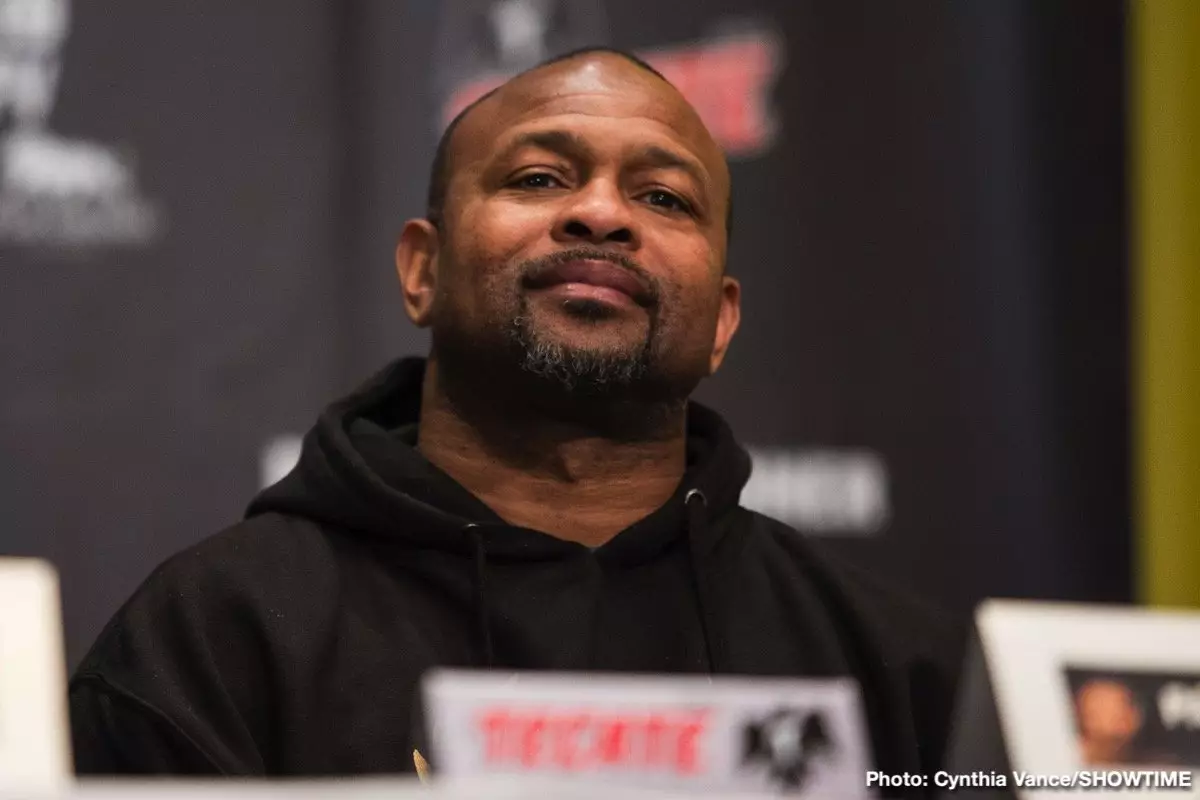In the realm of boxing, the synthesis of great fighters often results in captivating dialogues that transcend mere statistics and accolades. A recent episode of the boxing podcast “All The Smoke” saw two iconic figures, Roy Jones Jr. and Andre Ward, delve into the enchanting world of dream matchups—hypothetical bouts that never materialized but tantalize the imagination of boxing aficionados. What makes these conversations so compelling is the depth of respect and camaraderie shared between these two Hall of Famers, as they navigate the intricacies of their respective careers while pondering how they might have fared against each other or other luminaries from the sport.
One particular segment became a poignant highlight: a discussion centered on the ferocious Gerald McClellan. Most fans recall McClellan as a gifted knockout artist whose punches could end a fight in a heartbeat. However, what many may not know is that both Jones and McClellan squared off in the amateur circuit, with McClellan emerging victorious. This nugget added a layer of complexity to their analysis, prompting Jones to reflect on how he would have approached McClellan’s unique fighting style as a professional.
The Tactical Duel
When Jones dissected his hypothetical matchup against McClellan, it became evident he viewed the fight through a lens of strategy and mental warfare. McClellan, known for his relentless right hand, posed an inevitable threat that could alter the dynamics of a fight within seconds. Jones articulated a keen understanding of the need to disrupt McClellan’s rhythm. He emphasized the importance of controlling the distance and forcing McClellan to engage on Jones’s terms. For Jones, the key to neutralizing McClellan’s power hinged on applying pressure, making him commit to his strikes, and capitalizing on the moments when he was off-balance or vulnerable.
This insight sheds light on Jones’s own tactical genius—the very qualities that earned him the title of one of the greatest boxers of his time. The hesitance to allow McClellan to unleash his devastating right hand speaks volumes, showing both fighters’ acknowledgment of their capabilities and weaknesses. In contrast to what many may presume as sheer force overpowering speed and finesse, Jones outlined a game plan that required patience, adaptability, and a deep understanding of offensive and defensive boxing.
The Demons of History
However, as enlightening as this discussion was, it also served as a reminder of the fleeting nature of athletic careers and the unforeseen twists that fate can deliver. Their dialogue invariably touched on the tragic trajectory of McClellan’s life, most notably the harrowing events of February 1995, when a life-threatening injury altered the course of his career and life forever. This stark reality creates a haunting backdrop to their hypothetical battle—an exhibition of potential prowess marred by the brutal truth of combat sports.
Jones’s gestures of support towards McClellan resonate on a personal note, shedding light on the fraternity present within the boxing world. It reveals how bonds can endure despite the rigors of competition, illustrating that the fight continues long after the bell rings. Such stories of compassion underscore the emotional stakes at play, with each champion carrying the weight of their battles, both in and out of the ring.
The Allure of ‘What If’
The notion of “what could have been” elevates discussions like this into the realm of mythology. A Jones vs. McClellan fight in 1995 or 1996 could have been one for the ages—a stylistic clash between agility and raw power. Would McClellan’s aggression have overwhelmed Jones, or would the latter’s evasive maneuvers have led to a masterclass in finesse? The questions linger, tantalizing fans and sparking debates among enthusiasts.
The intellectual engagement demonstrated in these discussions honors the chess-like complexities that boxing embodies. They compel fans to appreciate not just the brute strength but the mental battles, the calculated risks, and the bold strategies that define a fighter’s legacy. This rich tapestry of history and speculation reminds us that in boxing, every bout tells a story—a story that often leaves us yearning for just one more chapter.

